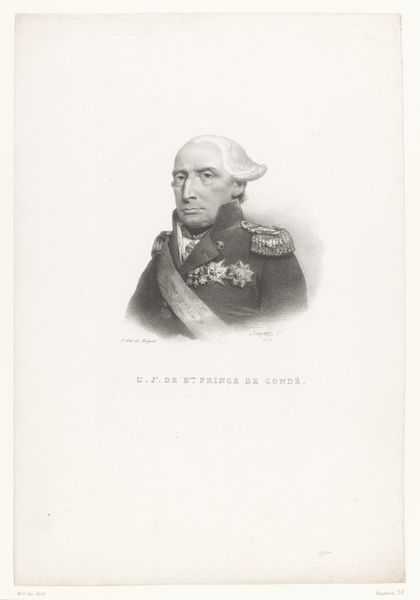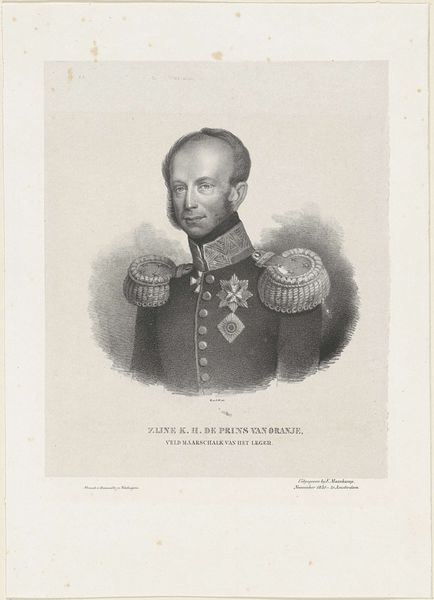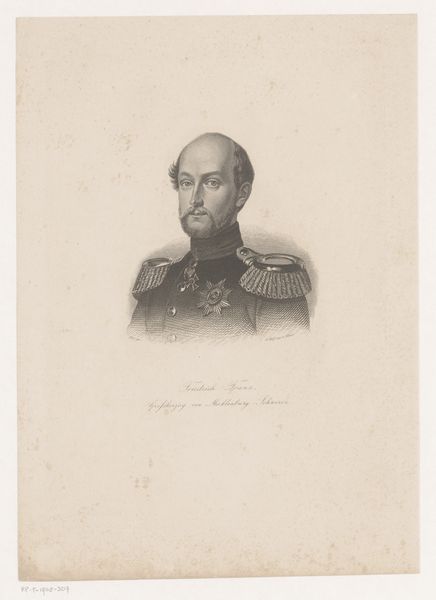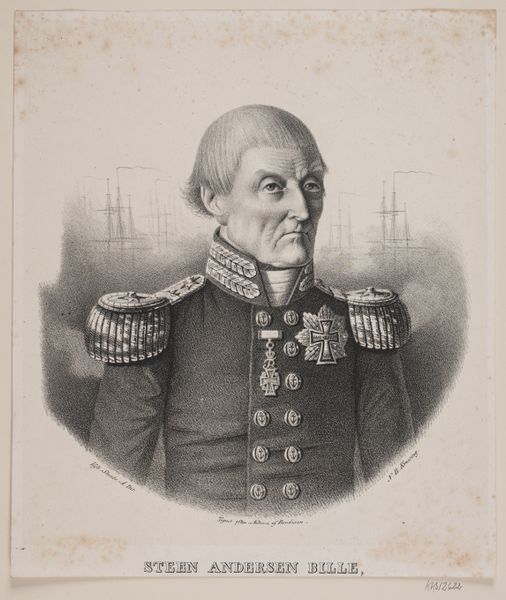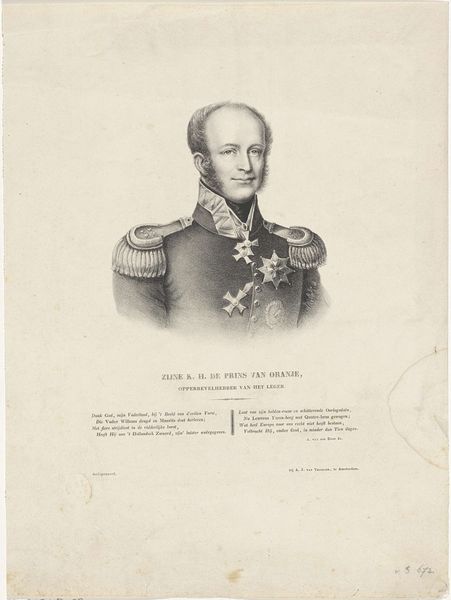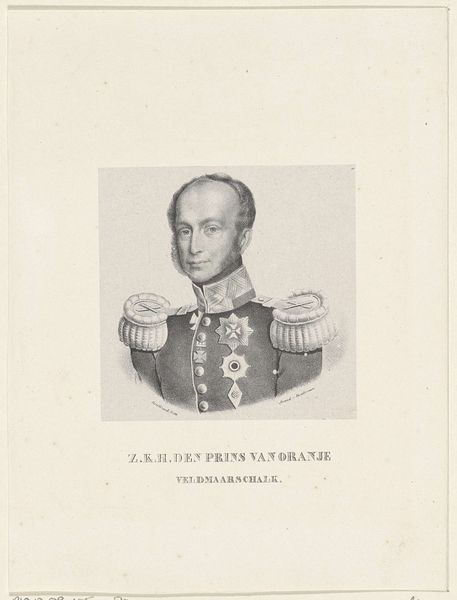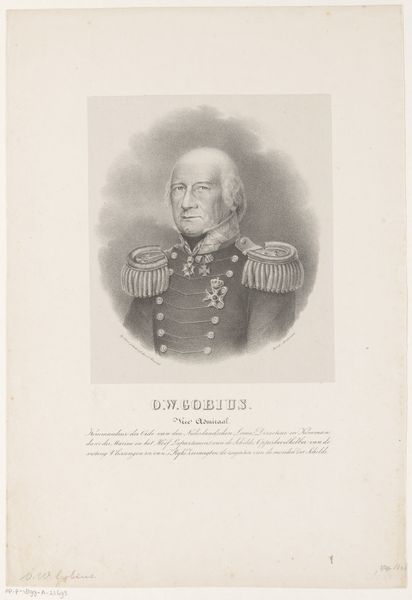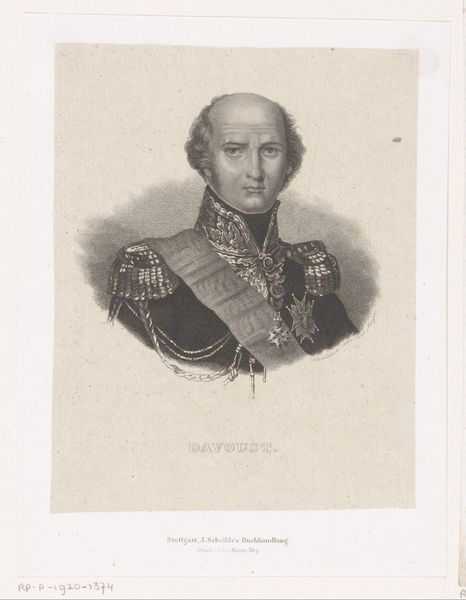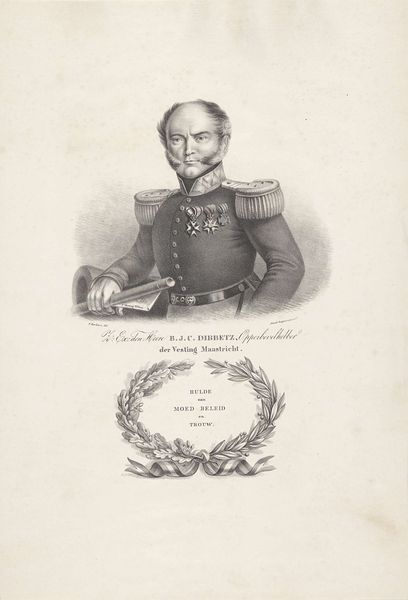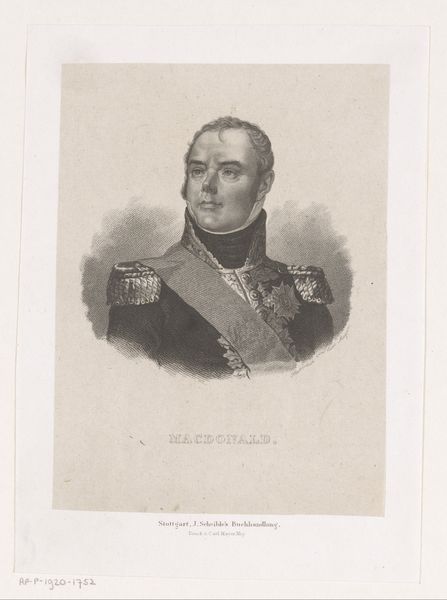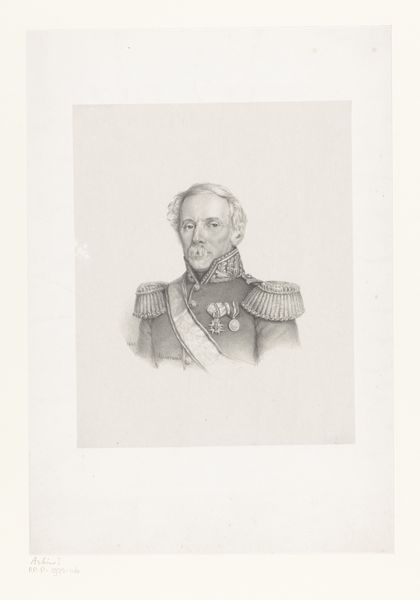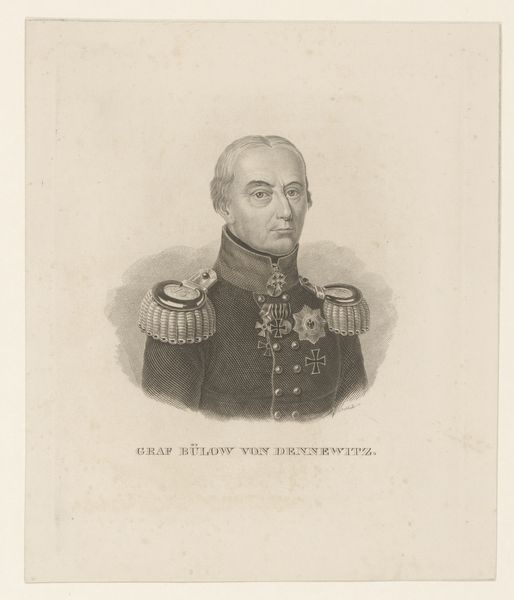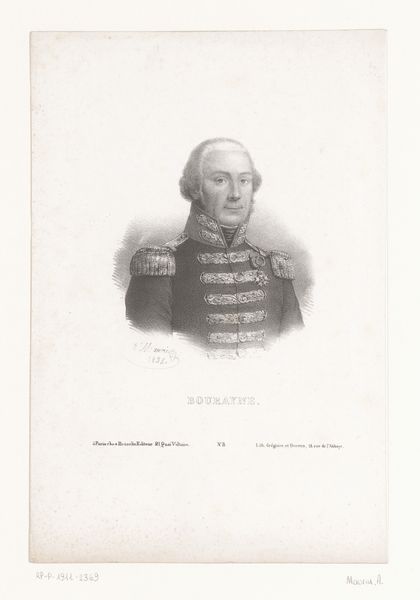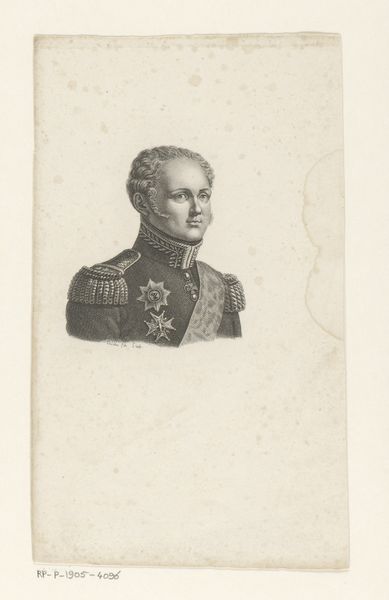
engraving
#
portrait
#
neoclacissism
#
old engraving style
#
history-painting
#
engraving
Dimensions: height 202 mm, width 129 mm
Copyright: Rijks Museum: Open Domain
Charles Aimé Forestier made this portrait of Charles Nicolas Beauvais de Préau using a printmaking technique called etching. This process involves drawing an image with a needle through a waxy ground on a metal plate, which is then bathed in acid. The acid bites into the exposed lines, creating grooves that hold ink. Consider the qualities of line achieved by the artist - dense hatching to build up darker tones, and fine strokes defining Beauvais's features. The printmaking technique is a crucial element in this portrait. It is a medium that allows for multiple reproductions. As such, it is well suited for distributing images of important figures like Beauvais to a wider audience. Printmaking democratized portraiture, breaking away from exclusive painted portraits. It made images accessible to a growing middle class. Etching, like other forms of reproductive printmaking, reflects the shift toward mass production and consumption in the 19th century. By understanding the materials and the making process, we see how this artwork participates in broader social and economic changes.
Comments
No comments
Be the first to comment and join the conversation on the ultimate creative platform.
